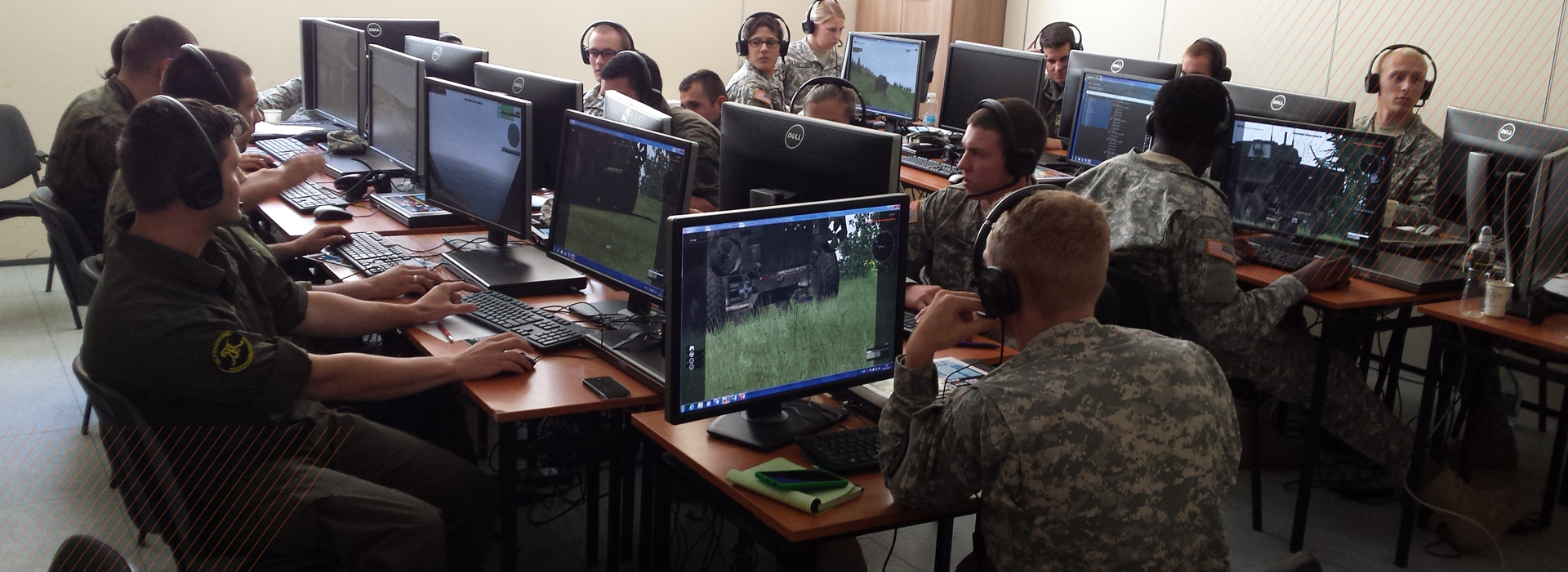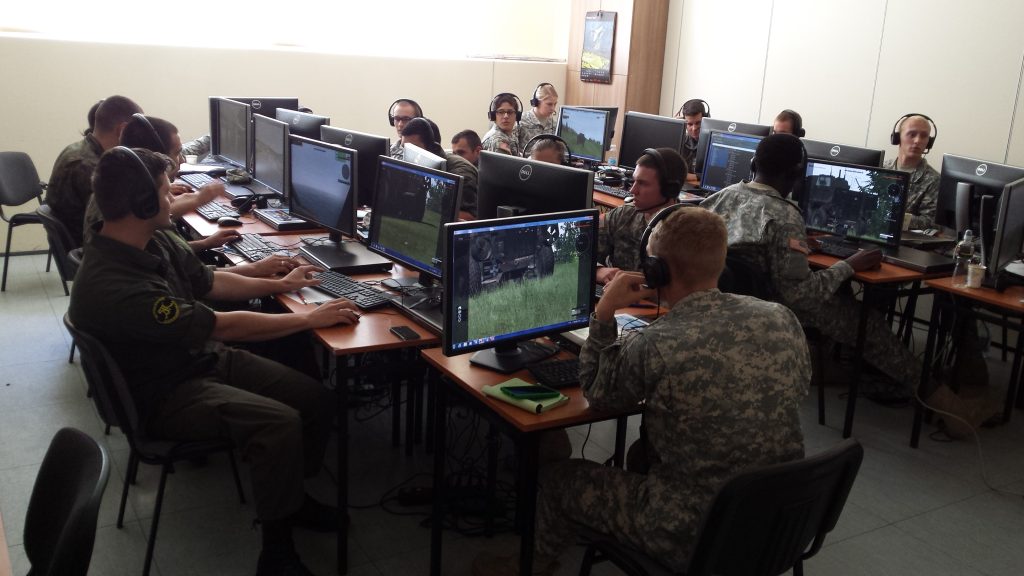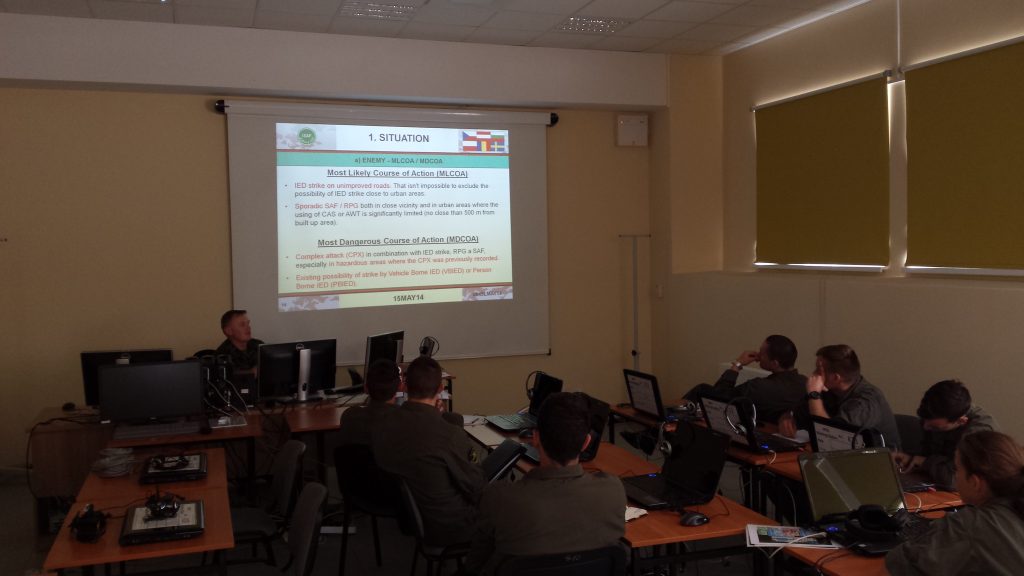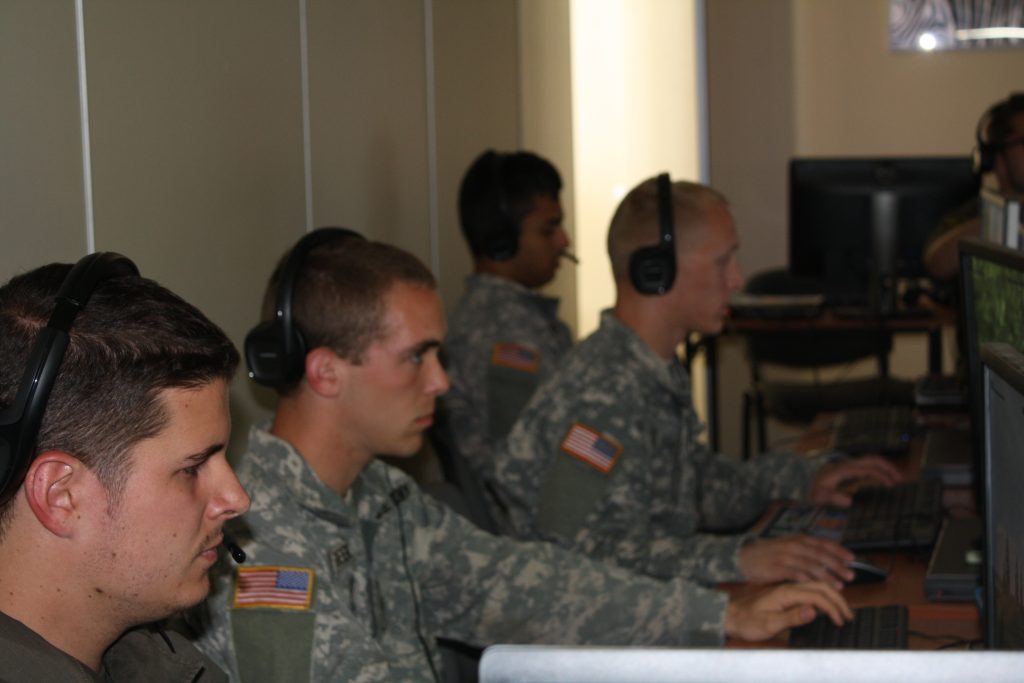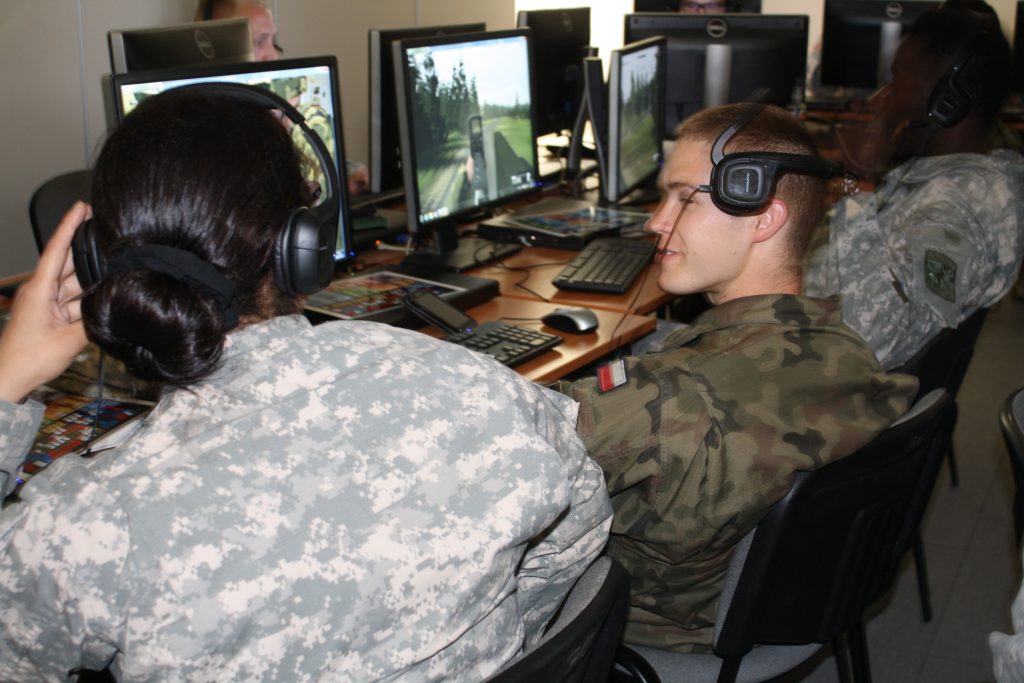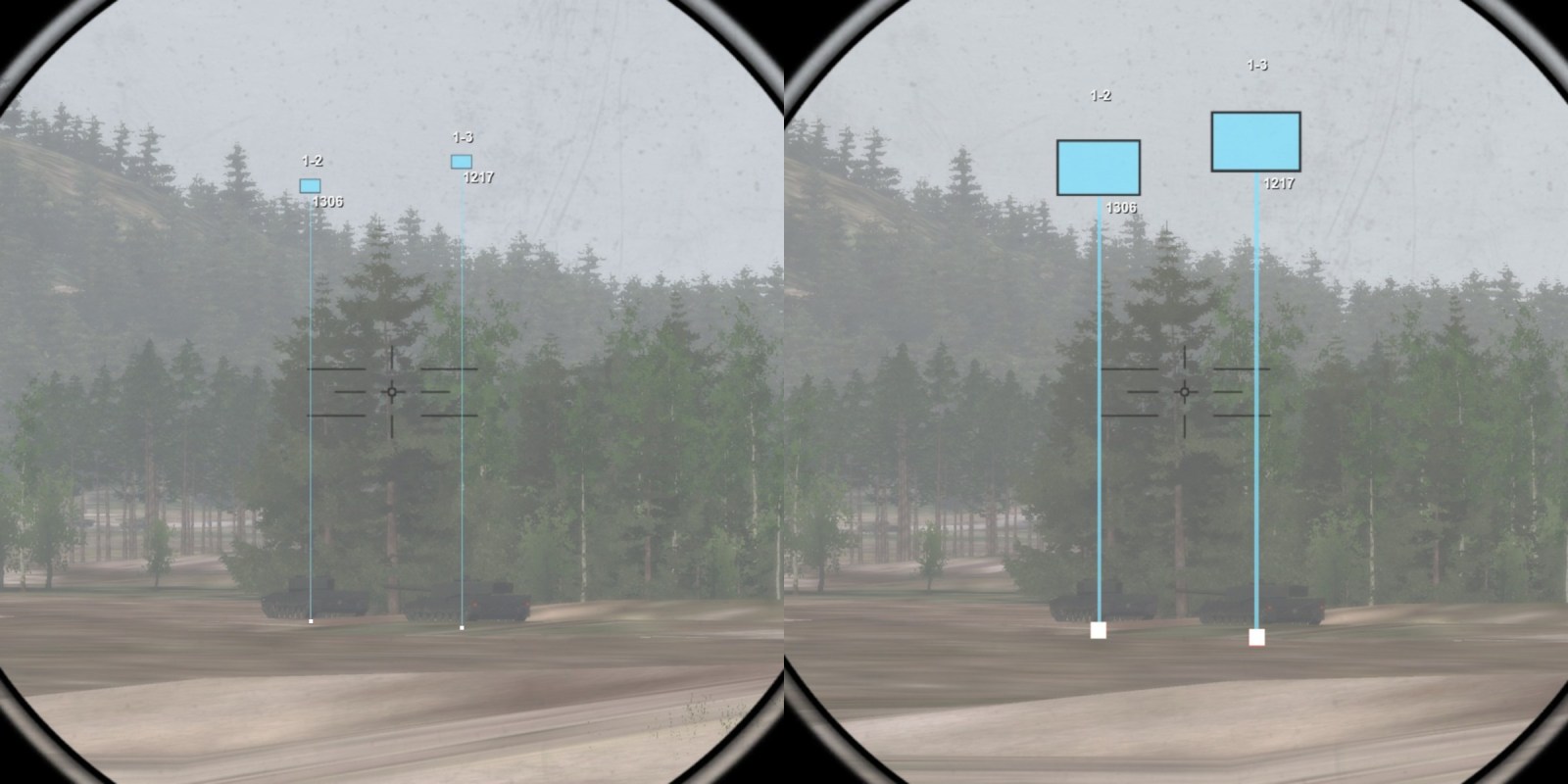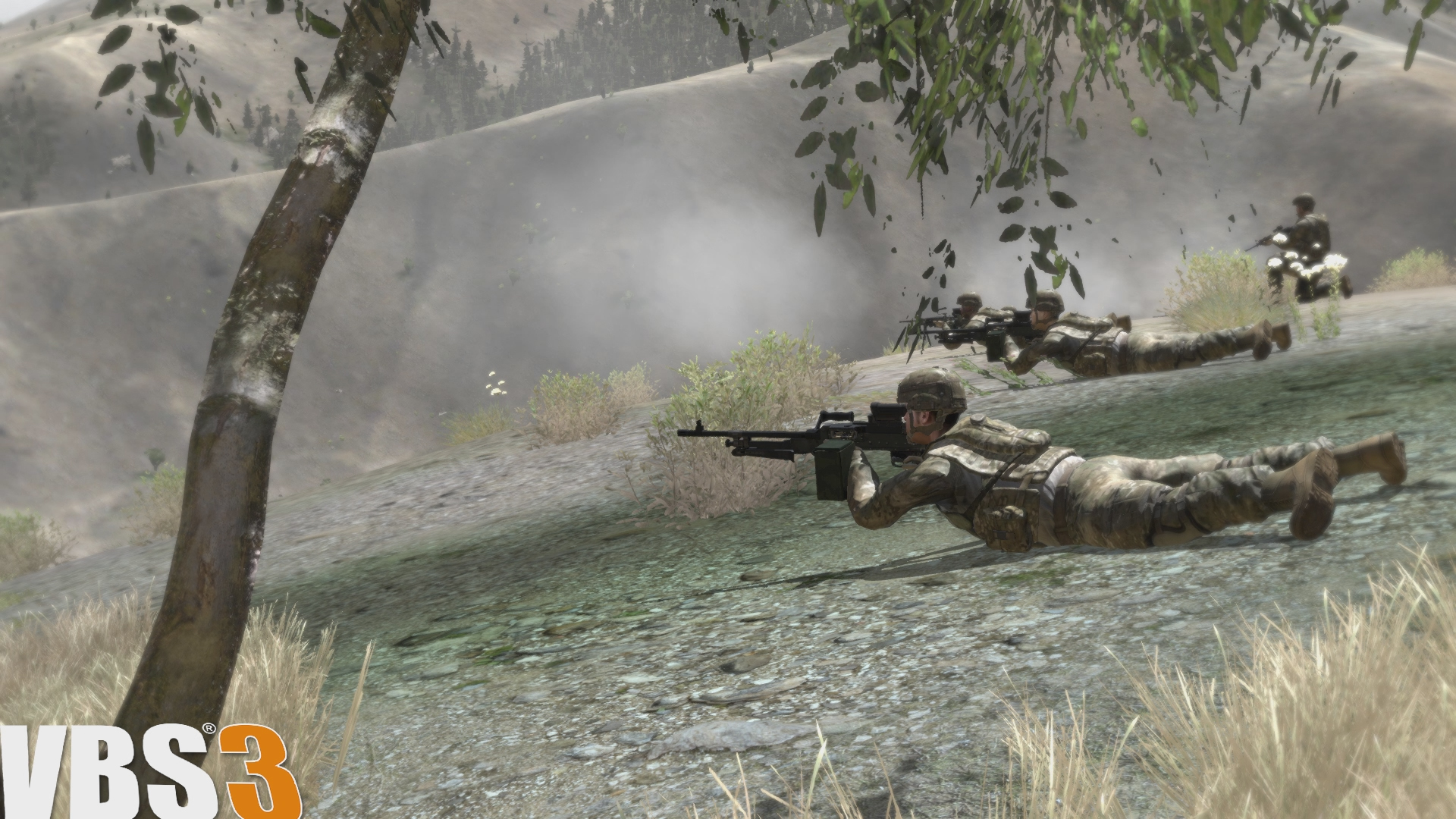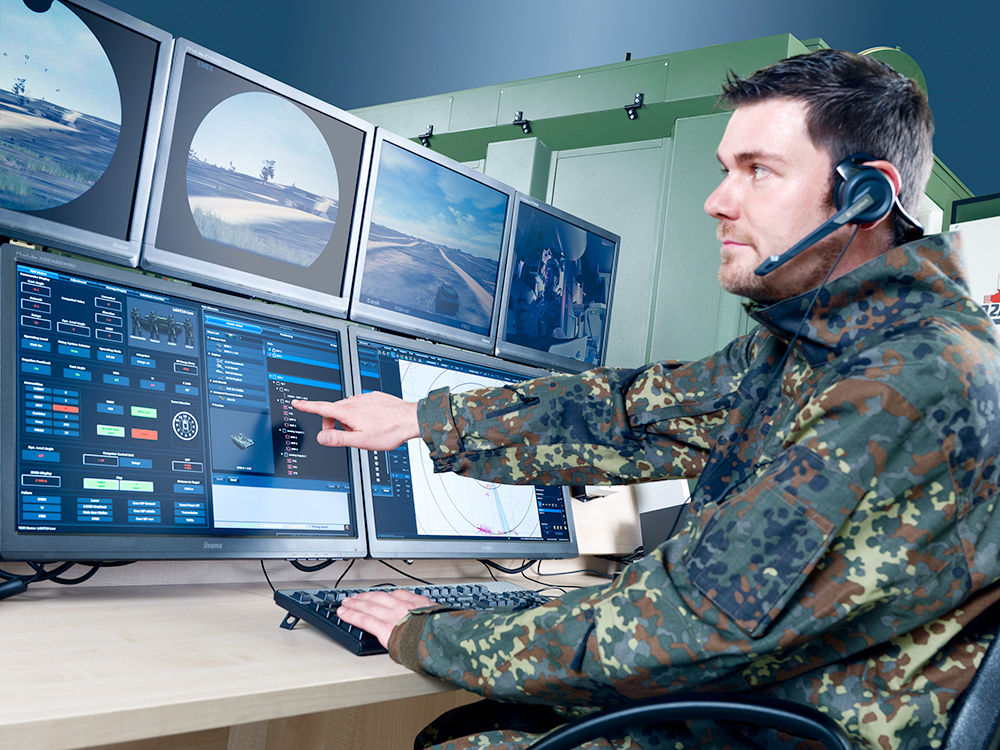Cadets, junior officers and troops at the Gen. Tadeusz Kosciuszko Military Academy of Land Forces (MALF) in Wroclaw, Poland, conduct training using VBS3 and the VBS2-based SK1 Platoon simulator.
The benefits of international exercises conducted in VBS are important. The field international exercises are much better for fostering the bonds between future junior leaders.Maj. Marcin Bielewicz of MALF
The academy uses VBS3 and the SK1 Platoon simulator for a wide range of training tasks including combat operation exercises, infantry platoon defense and attack, tank platoon defense and attack, reconnaissance, leadership training for platoon and squad leaders, and peace support operations.
“These simulations have greatly enhanced situational awareness, allowing them to train on various scenarios according to their military branches,” said Maj. Marcin Bielewicz of MALF. The academy, and the Department of Tactical Simulations in particular, has introduced additional refreshment and sustainment training on the simulators, allowing cadets to improve their leadership skill and situation awareness, Bielewicz added.
Aside from regular classes for Polish cadets, the simulator systems are employed to support international events organized by the academy.
This year the academy held the third edition of Peace Support Operation course for cadets. The training event is part of the EMILYO, the European Initiative for Exchange of Military Young Officers between the European Union nations, and beyond, in support of the Common Defense and Security Policy of the EU. The course was attended by 25 cadets and 12 teachers and instructors from Poland, Austria, Romania and the USA.
Additionally, the academy, as the only Polish military education institution, hosted the Culture Understanding and Language Proficiency (CULP) program for US cadets to learn about the culture and traditions of their allies. The Practical portion of the course was conducted in the academy’s mountain training center and in the VBS3 lab. The cadets from Poland, Austria and the United States had the opportunity to cooperate in the synthetic environment with their military counterparts.
“The CULP program greatly influence participants’ future careers and enhance their operations while deployed in the multinational environment,” Bielewicz said. “The benefits of international exercises conducted in VBS2/3 are important. The field international exercises are much better for fostering the bonds between future junior leaders, but nowadays such exercises are rare, because of their cost. However, we do both.”
“We appreciate BISim personnel’s support for our international simulation and training activities,” said Bielewicz.
MALF is working to connect the SK1 Platoon simulator and VBS3 lab into one training environment, to provide training for Call for Fire and Close Combat Attack procedures training, as well as to prepare and conduct a distributed exercise with their Czech partner – University of Defense, Brno.


